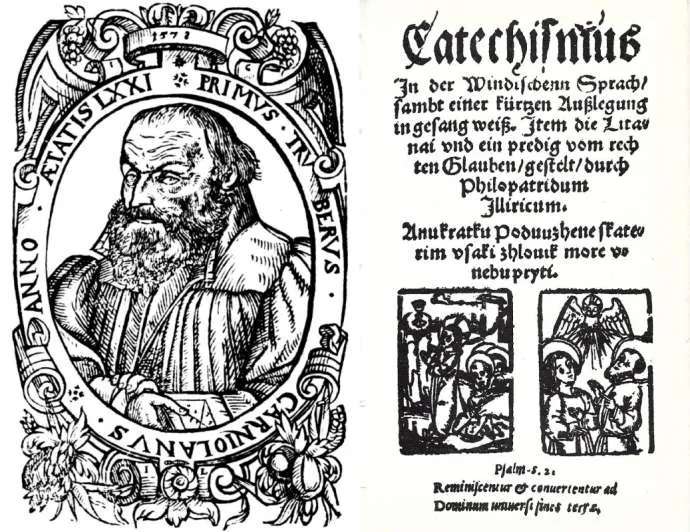STA, 31 October 2021 - Slovenia is celebrating Reformation Day on Sunday, a public holiday that marks more than just the start of the Reformation Movement in 1517, it also celebrates the beginnings of the Slovenian language.
In line with demands that religious books should be in a language that the people understand, the Slovenian Reformation Movement produced the first books in the Slovenian language.
The first one, Cathecism (Katekizem), was written by the Protestant priest Primož Trubar (1508-1586) in 1550, followed the same year by his second book Abecedarium (Abedecnik).
The two books, and subsequent books by other Protestant writers, are seen as the foundations of the Slovenian language but also of Slovenian culture and national identity coming several centuries before the idea of Slovenian nationhood was first articulated.
This point was also highlighted by Prime Minister Janez Janša in his message and by Culture Minister Vasko Simoniti in his speech at the main Reformation Day ceremony in Krško on Friday.
Janša said that the first printed book in Slovenian had laid a more solid foundation for the survival of both the Slovene language and the Slovene nation.
"Just as the Slovenian literary language placed us among the culturally developed nations of Europe five hundred years ago, so today, in times of globalisation and the blurring of national boundaries, the Slovenian language (still) remains a key part of our cultural heritage and identity. The centre of national consciousness. It is the bond that binds us together, preserves us and is the foundation of our identity," Janša wrote in today's message.
Simoniti said the Reformation had "paved the spiritual path" for the Slovenian language, providing the foundations for its development as a literary language and for Slovenian national identity.
Parliamentary Speaker Igor Zorčič said in his message that "even today, we must not lose sight of the message of the reformist revival that when we are stuck in the quagmire of our own disagreements and divisions, change is necessary and must be sincerely pursued by all".
He believes that even more than half a century after the Reformation, concern for the fundamental questions of every human being - the question of freedom, justice and human dignity - continues to be imposed. "It is our responsibility to find adequate answers to these questions," he wrote in his message.
"Political parties must not divide us, but unite us, they must stand up for the good of all citizens, because only in this way can they ensure a functioning state", Bishop Leon Novak pointed out in his sermon on Reformation Day in Murska Sobota. In this context, he said, particular attention must be paid to language and the form of speech.
Reformation Day has been a public holiday since 1992.



